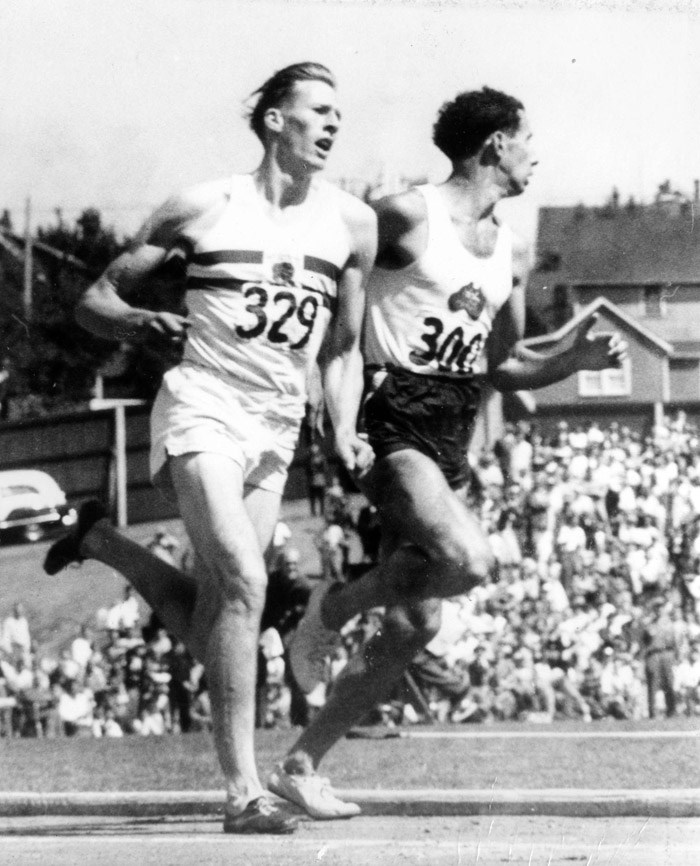The 1954 Games marked the city’s first major attempt to use a sporting event to build social and economic legacies.
Half a century before the 2010 Olympics, the world came to Vancouver for a mega sporting event that many Vancouverites hoped would put the sleepy town on the world map. The 1954 British Empire and Commonwealth Games was one of the biggest sporting events at the time, with 662 competitors from 24 nations.
Hosting the Games was considered a significant coup for Vancouver which won the bid over Toronto, Montreal and Hamilton. Besides boosting the city’s international profile, supporters believed the event would be a tourism boon and leave a chain of economic and cultural legacies. One politician even suggested the games would tackle juvenile delinquency by encouraging youth enrolment in local sports programs. Imperial-minded Vancouverites saw the event as a chance to celebrate the glory of the British Empire and reinforce Canada’s Imperial connection.
Not everyone was thrilled however. Vancouver Sun columnist Jack Scott decried the imperial sentiment, declaring the games “a scandalous waste of public funds and a boost for racial bigotry.” He encouraged mothers to picket outside the construction of a bicycle track to protest massive spending on sports facilities over “scandalously crowded schools” and “pathetically inadequate hospitals.”
“The Thrill of Victory and the Agony of Defeat.”
Political disagreements aside, the Games produced some remarkable sports stories. At Empire Stadium in Hastings Park, the highly anticipated men’s mile race marked the first time Roger Bannister and John Landy broke the four-minute barrier in the same race. The event that became known as “Miracle Mile” was televised live across the world and featured in the very first issue of Sports Illustrated.
 Roger Bannister and John Landy in the Miracle Mile race in Empire Stadium. Photo: City of Vancouver Archives 180-3607.
Roger Bannister and John Landy in the Miracle Mile race in Empire Stadium. Photo: City of Vancouver Archives 180-3607.
There were agonies as well – stunned spectators watched English marathon runner and world record holder Jim Peters collapse repeatedly during the final 400 metres of the marathon due to dehydration and heatstroke. Peters didn’t complete the race and never raced again.
BC Sports Hall of Fame Curator Jason Beck has spent several years writing a book about the legacy of the 1954 Games and will share some of its memorable stories at a Vancouver Historical Society talk this Thursday February 25 at 7:30pm at the Museum of Vancouver. The talk is free and open to the public.
The Vancouver Historical Society is a non-profit society that stimulates public interest in Vancouver's history, to encourage historical research and publication, and to promote the designation and preservation of historic sites. For information about its upcoming speakers visit vancouver-historical-society.ca


